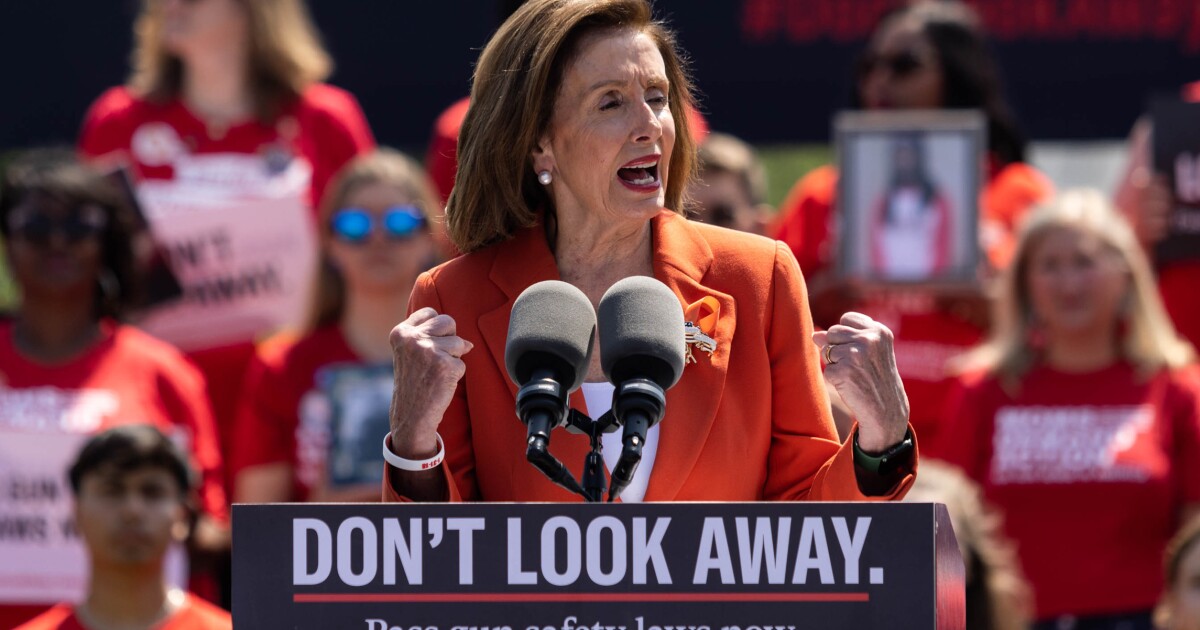

Last week, the House passed a raft of legislation that would raise the required purchasing age for semi-automatic weapons from 18 to 21 and ban high-capacity magazines and bump stocks for civilian use, alongside other restrictions. Proponents said the measure would reduce gun violence, while opponents said Congress should harden school security and improve mental health resources rather than limit gun rights for law-abiding citizens.
The bill is unlikely to be approved by the Senate, where it would need 10 Republican votes to clear the 60-vote filibuster threshold. But bipartisan negotiations on a legislative response to a string of recent mass shootings are still underway in the upper chamber. Notable participants in those negotiations include Sen. Chris Murphy (D-CT), whose home state saw its own elementary school shooting a decade ago. Murphy has pleaded for bipartisan cooperation on a gun bill in the aftermath of a shooting at a Uvalde, Texas, elementary school. Sen. John Cornyn (R-TX) returned to the Senate from a visit to Uvalde and indicated his willingness to participate in those discussions in a floor speech.
Any specific agreement between Senate negotiators has not yet been made clear, but senators on both sides expressed optimism about their direction while acknowledging that differences of opinion remain.
In remarks on the Senate floor Wednesday as the House debated its gun legislation on the other side of the Capitol, Cornyn said he was optimistic about the Senate’s negotiations.
“Sen. Murphy from Connecticut, Sen. Tillis from North Carolina, Sen. Sinema from Arizona, and I have been looking at these various factors … that might have prevented some of these tragedies,” Cornyn said. “To me, that’s the best way to look at this: to say, if this had been in place, is it less likely that this tragedy would have occurred? Stated another way, if we do this, is there a chance or a probability that we could save lives in the future? To me, that should be our focus.”
While saying that the group was making “steady progress,” Cornyn argued that “artificial deadlines” are not helpful, pushing back on Senate Majority Leader Chuck Schumer (D-NY), who has indicated that the Senate will hold a vote on Democrats’ legislation if a bipartisan deal is not reached shortly.
Likely steps the Senate will consider include incentivizing states to pass red flag laws or enhanced background checks that include juvenile criminal records.
In his remarks, Cornyn singled out requiring states to upload juvenile records into the National Instant Criminal Background Check System as one potential area of agreement.
Should the Senate reach a bipartisan agreement, House Democratic leadership would then face a choice between approving a more modest bill than the one it has already passed or passing nothing at all.
Asked at a press conference before last Wednesday’s House vote about considering a bill from the Senate that is more narrow than House Democrats’ legislation, House Democratic Caucus Chairman Hakeem Jeffries of New York said, “I’m very confident in our ability to make sure that we are continuing to lead the effort to pass meaningful gun violence prevention legislation.”
Jeffries said the bills before the House “will save lives and make a difference,” adding that a Senate version of new gun legislation is still hypothetical.
“Because the Senate hasn’t put anything forward for us to take a look at, it’s speculative to comment on anything that they may come up with,” he said. “But we’re hopeful that they come up with something meaningful.”
At a June 9 press conference, House Speaker Nancy Pelosi touted the House’s bills but said, “Of course, we’re prayerful about what the Senate may come up with and are eager to hear what that is and to work together to turn it into the law of the land.”
Acknowledging that any Senate version of gun legislation will be more narrow in scope, Pelosi said she has “confidence in those who are negotiating in good faith.”
“If it’s life-saving and can make a difference and they have bipartisan support for it, then we would welcome it, even though it won’t be everything that we want,” Pelosi said.







